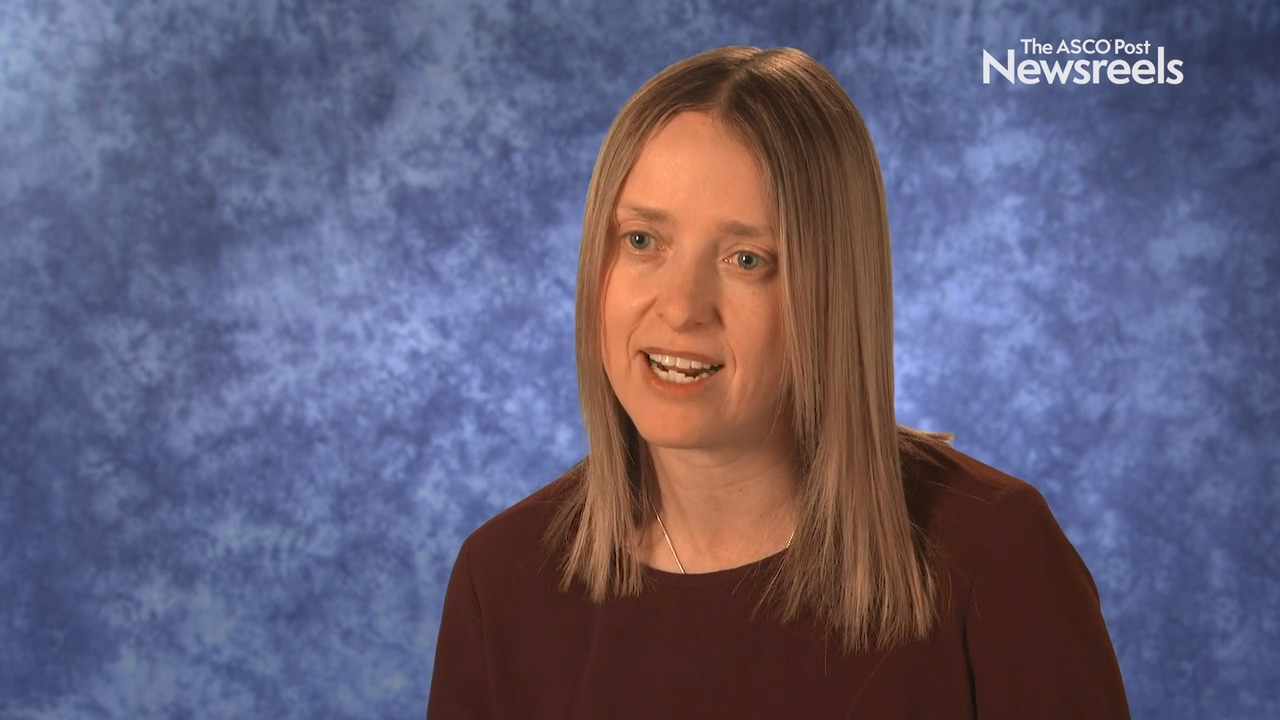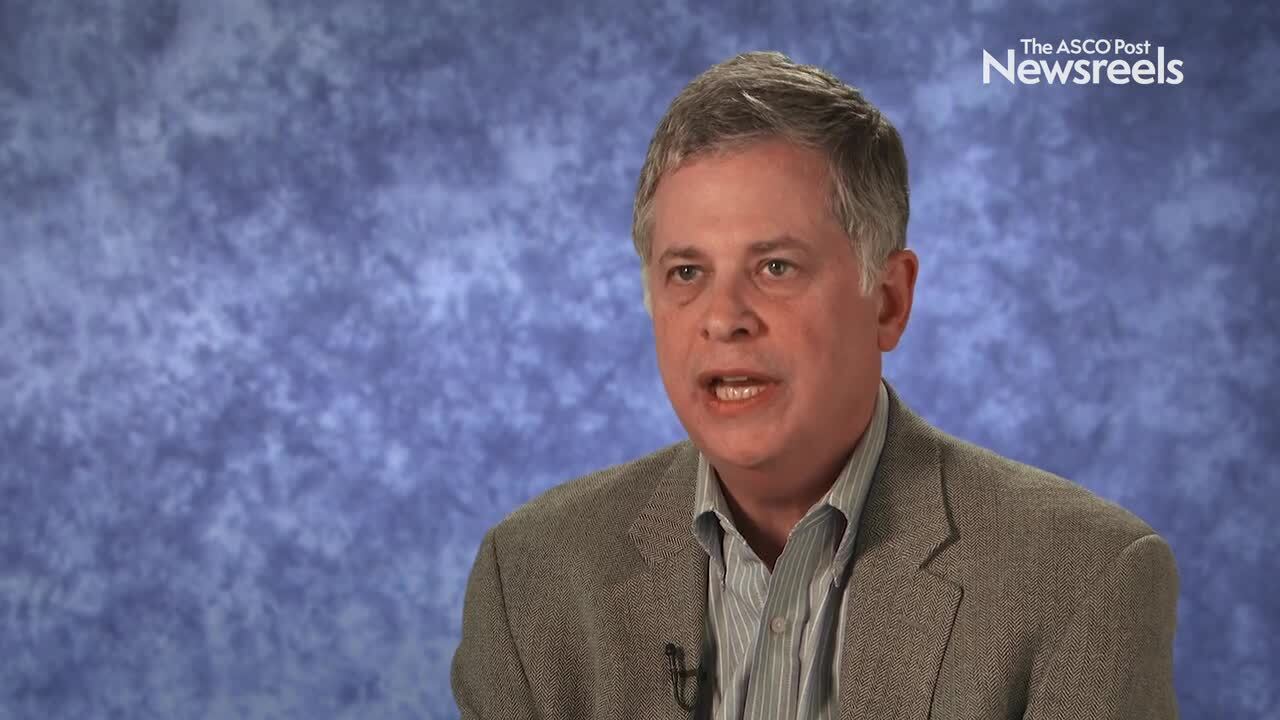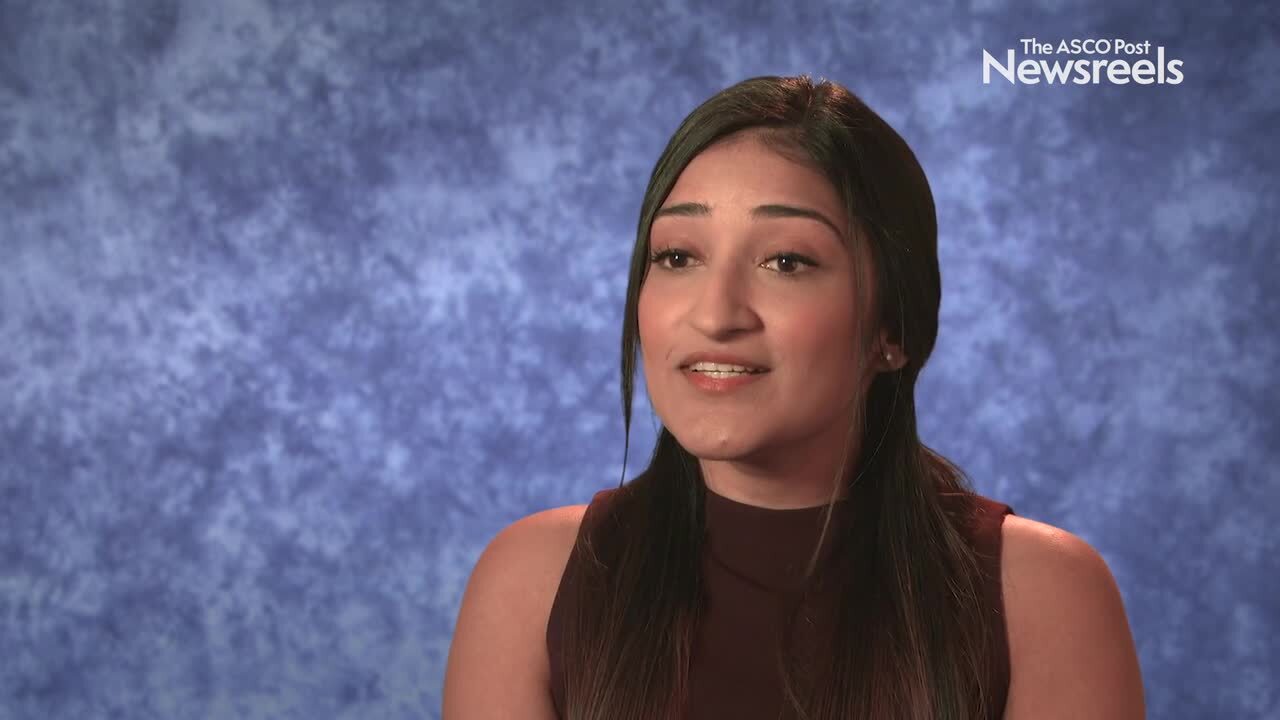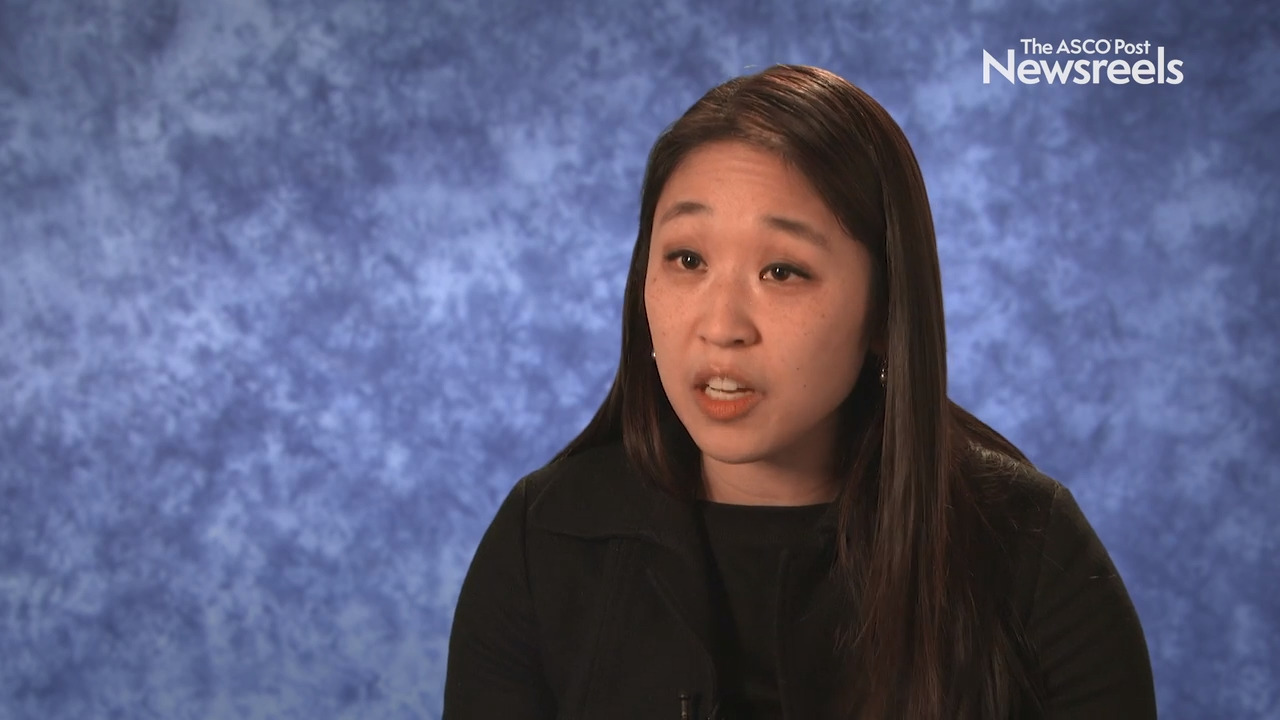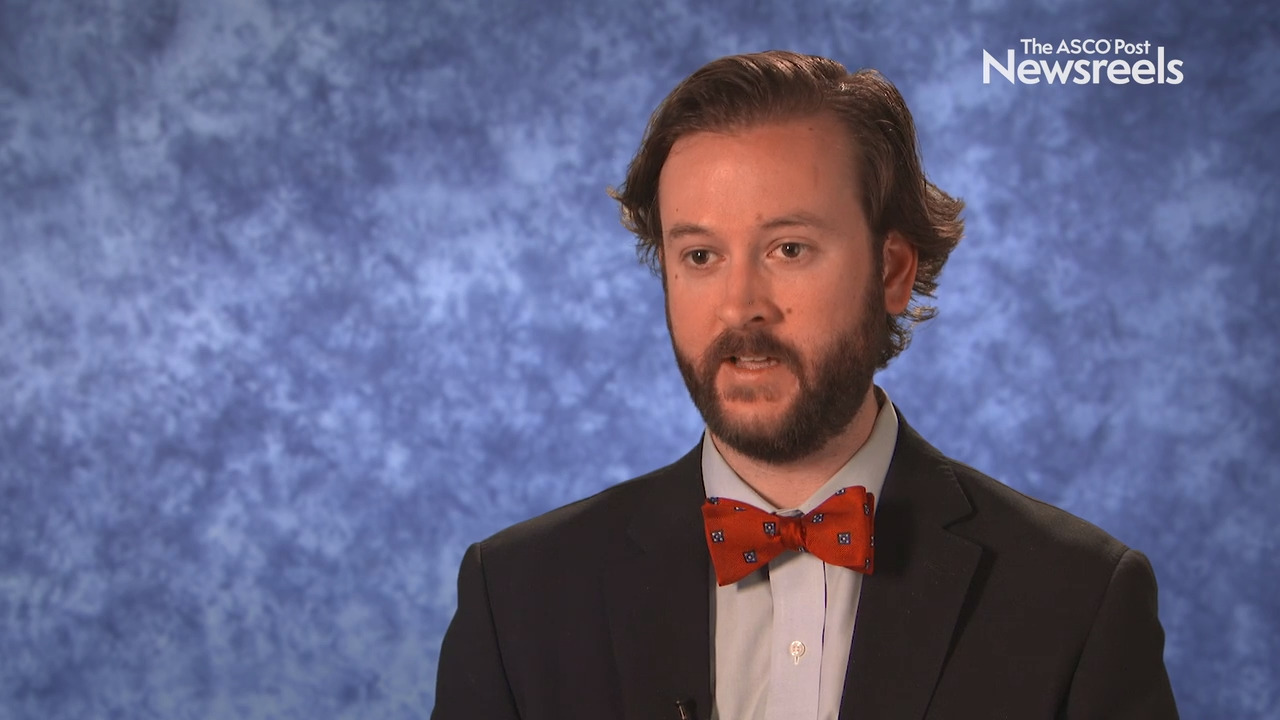Kyle F. Concannon, MD, on Lung Cancer in Homeless Patients: Outcomes and Quality Measures
2019 Multidisciplinary Thoracic Cancers Symposium
Kyle F. Concannon, MD, of the University of Washington/Seattle Cancer Care Alliance, discusses study results on the delays in biopsy after radiographic findings among homeless vs housed patients with lung cancer, and the higher rates of missed appointments following diagnosis (Abstract 125).
Leora Horn, MD, of Vanderbilt University Medical Center, discusses the progress made treating extensive-stage small cell lung cancer, improvements in progression-free and overall survival, and the fact that it’s still difficult to determine which patients will benefit most from immunotherapy.
Martin Edelman, MD, of Fox Chase Cancer Center, discusses the limited retrospective data that indicate some patients with cancer and autoimmune disease (such as lupus or ulcerative colitis) can safely receive immunotherapy with checkpoint inhibitors.
Shraddha M. Dalwadi, MD, MBA, of Baylor College of Medicine, discusses the nearly 12% of potentially curable patients with stage I NSCLC who do not receive treatment, the various socioeconomic reasons why, and how some patients may benefit from minimally invasive therapies (Abstract 127).
Susan Y. Wu, MD, of the University of California, San Francisco, discusses how patient exposure to treatment guidelines improved smoking cessation counseling and the use of molecular testing, and decreased the use of adjuvant chemotherapy in patients with early-stage disease (Abstract 5).
J. Fletcher Drogos, MD, of Rush University, discusses study findings on overall survival and toxicity among patients who undergo multiple radiation treatments for lung cancer.
